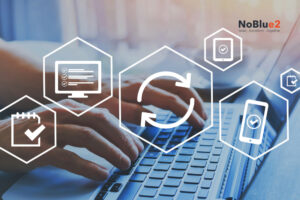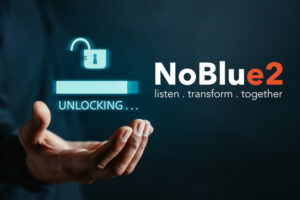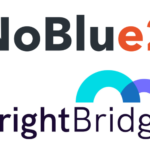The way your company processes transactions, manages its finances and runs its day-to-day operations may well be holding you back. You may be using software to do some or all of the work. But how do you know when your legacy software or your manual processes are impeding your progress? Here are seven tell-tale signs that it’s time to implement ERP software.
1. Inadequate Business Data
If you don’t yet have ERP software, or if your legacy systems are not integrated with each other, then your teams will be left with a considerable amount of manual work. It takes time to extract and cross-check information from different spreadsheets or to consolidate figures from several databases to uncover data and produce reports. Beyond that, when your employees have to print off those reports or email them internally, the processes are clunky, time-consuming and ineffective.
An ERP will integrate with your other systems. It can pull data in automatically from these solutions as well as push updates out to them. You can instantly access figures and reports and see live data about your operation. Your staff won’t have to spend a day collating figures and configuring a report but can instead act immediately on the intelligence that an ERP system delivers.
2. Systems That Don’t Work Well Together
When you have disparate systems, it can become difficult to continue to get them to work well together. You may be finding that your accounts software can’t extract the data from the new field you added in your CRM, for example. Or perhaps picked orders in your warehouse aren’t reflecting stock levels in your ecommerce website.
If you’re spending significant time and money trying to patch things together to avoid your functional systems becoming siloed, then you will probably be better off replacing them altogether.
3. Growing Customer Issues
The customer is king and always will be. But all too often, inadequate software and processes can hamper efforts to provide exceptional customer service, leading to declines in customer loyalty.
This is particularly key if you sell products. You need to forecast accurately so that you have the right stock on hand to meet customer demand. And if data about your stock is held separately from order and customer data, then this can lead to shortcomings in your operation.
When you have ERP software, the data is all held in a central database, allowing staff from across the business to check it. Individual order details can be interrogated by customer services and live stock levels can be assessed by the warehouse. You can even provide customers with a reliable and effective self-service option that allows them to check their accounts and view the delivery status of their orders.
4. Preparing Financial Accounts Takes Too Long
Finance is at the core of everything your company does. So, when your accounts staff are spending hours every day manually entering orders and invoices or taking days to complete the monthly reconciliations and year-end close, then it’s definitely time to consider an ERP. These sorts of tasks can be automated and done in a fraction of the time.
When all your financial information is stored in a single database, your staff don’t have to re-input data or manually reconcile data in spreadsheets. Your finance team will be more productive and can deliver the reports you need without delays and setbacks.
5. Adapting Your Processes to Fit Your Current Systems
Adapting your business processes to fit your current software is an indicator that the system is no longer fit for purpose. Some companies will do this to avoid the expense of having their software heavily customised to make it fit their procedures. But doing either is foolhardy.
You should instead be using software that meets the needs of those processes, or which streamlines and improves them. A flexible, scalable ERP can fit with your way of working and can grow and adapt as your business changes.
6. Rapid Growth
If your business has quickly expanded, then your systems may no longer be able to cope. Perhaps you’ve added products and services, expanded overseas or set up new subsidiaries. A changed company set-up like this will require different functionality. And if your structures or software can’t handle multi-currency accounting, international taxation or new regulatory requirements, then it’s time to upgrade.
Modern ERP systems can easily accommodate all this and provide a solid foundation for growth. If you have plans for growth, then you need an ERP that will be the backbone of your organisation.
7. Ecommerce Requirements
With mobility badly impacted by pandemic lockdowns, companies with retail outlets have had to adapt to survive. For many, ecommerce has helped them through the pandemic, allowing them to offer their products online for the first time. If this is your situation, then you will want ERP software that can readily integrate with an ecommerce website.
Even better, you could implement a new ERP system that already includes an ecommerce website, such as NetSuite SuiteCommerce. An integrated ERP and ecommerce stack offers a new distribution channel, helping you to compete better and improving your financial prospects during the next few years of anticipated economic difficulties.
If you recognise any of these signs in your own company, it’s time to consider implementing ERP software. Our NetSuite pricing is simple and predictable and is based on your specific requirements. If you would like a free business consultation or a tailored quote, book an appointment today or contact us. Our in-house team of certified consultants can help you with the right best of breed ERP system to do business now.










